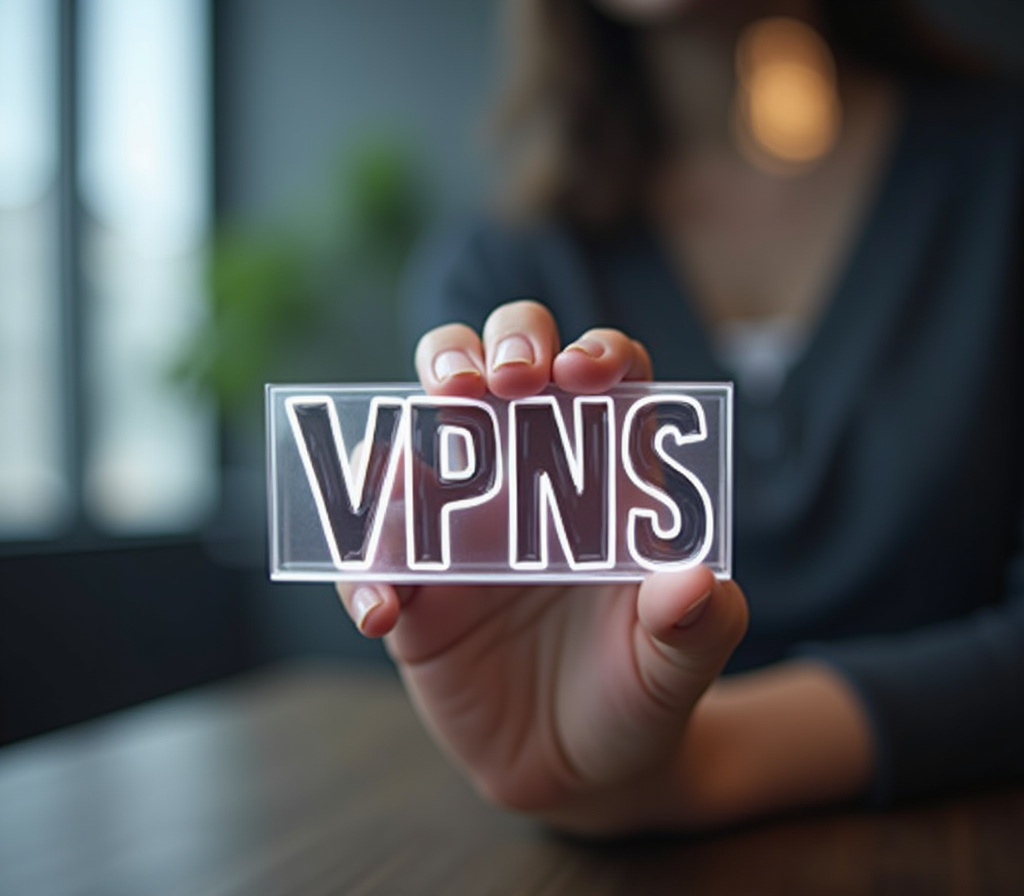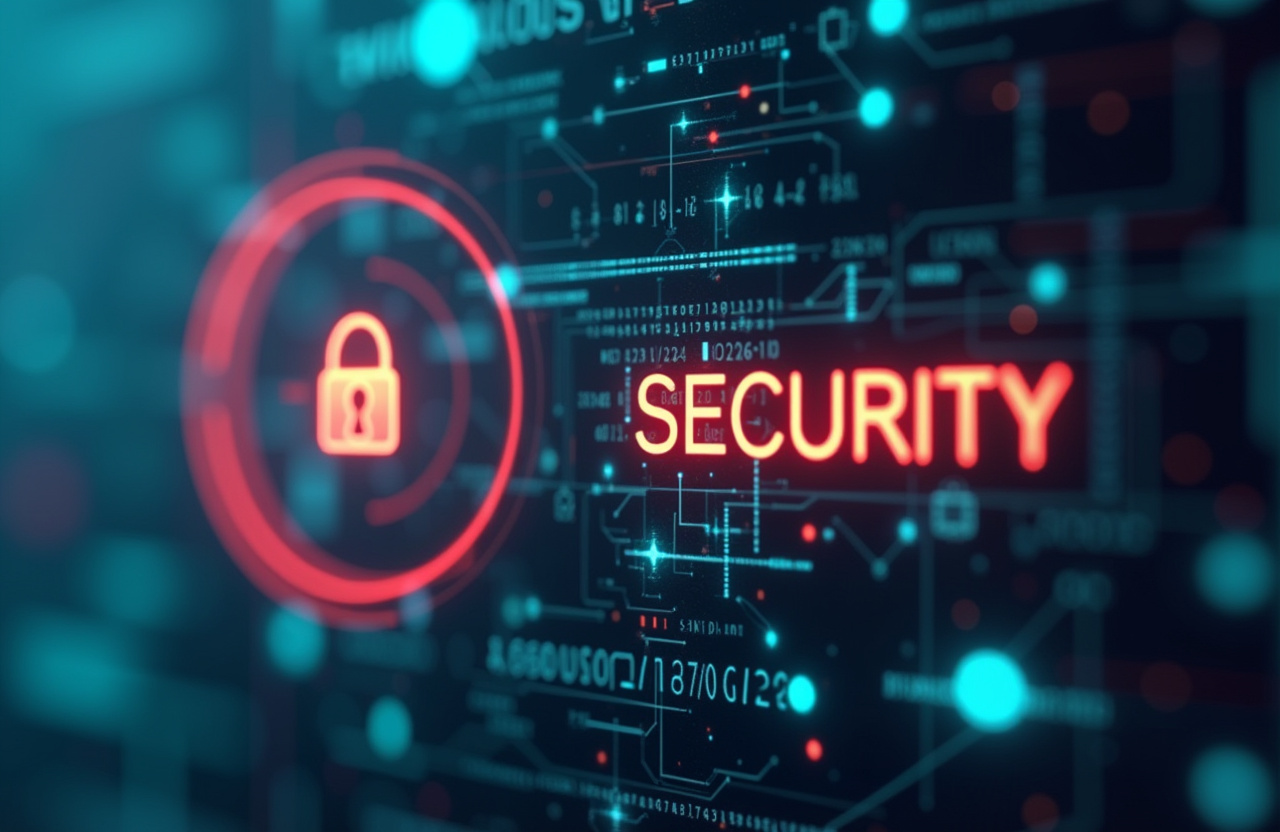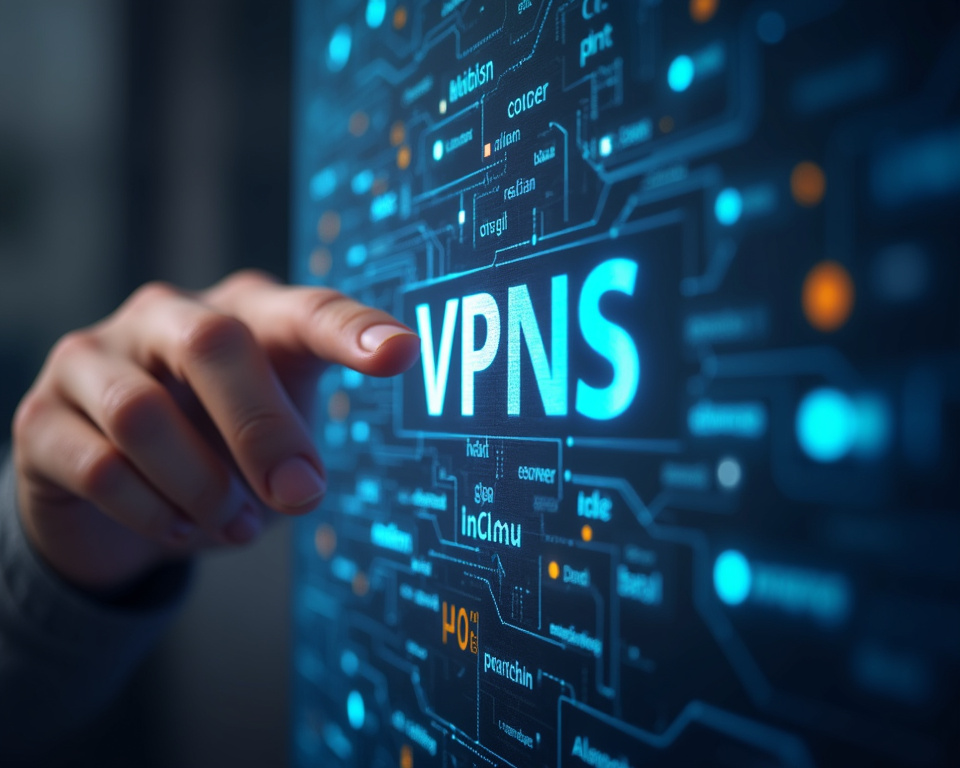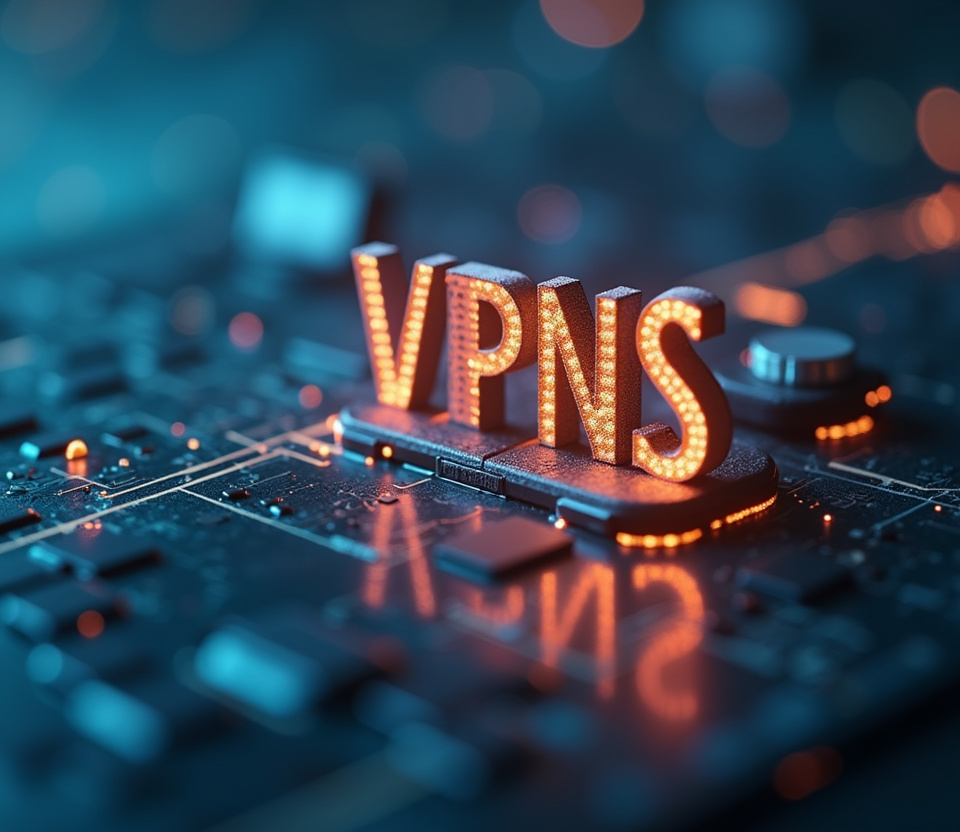VPNs for Volunteer Networks: Protecting Member Information

Table of Contents
VPNs for Volunteer Networks: Protecting Member Information
In today's interconnected world, volunteer networks play a vital role in addressing societal needs and driving positive change. These organizations rely on the dedication and commitment of their members, who generously contribute their time, skills, and resources. However, the digital landscape presents unique challenges to volunteer networks, particularly in safeguarding sensitive member information and ensuring secure communications.
A volunteer network VPN, or Virtual Private Network, emerges as a crucial tool in mitigating these risks, offering a robust solution for protecting member security, enhancing communication protection, and upholding privacy. The adoption of a VPN for nonprofits is not merely a technical upgrade; it's a commitment to creating a safe, secure, and trustworthy environment where volunteers can freely collaborate and contribute without fear of data breaches or privacy violations. The digital age has brought unprecedented opportunities for volunteer networks to expand their reach and impact.
Online platforms, social media, and remote collaboration tools have enabled volunteers from diverse geographical locations to connect, share ideas, and coordinate efforts. However, this increased reliance on digital technologies also exposes volunteer networks to a range of cybersecurity threats. Data breaches, hacking attempts, and unauthorized access to sensitive information can compromise member privacy, damage organizational reputation, and hinder the network's ability to effectively carry out its mission.
Therefore, implementing robust security measures is paramount for volunteer networks to ensure the confidentiality, integrity, and availability of their data. Member security is the cornerstone of any successful volunteer network. Volunteers entrust their personal information, contact details, and sometimes even financial data to the organization.
This information must be protected against unauthorized access, misuse, or disclosure. A volunteer network VPN provides a secure tunnel for data transmission, encrypting all traffic between the volunteer's device and the organization's servers. This encryption makes it virtually impossible for hackers or eavesdroppers to intercept and decipher sensitive information.
By implementing a VPN, volunteer networks demonstrate their commitment to protecting member privacy and building trust within the community. This trust is invaluable; it encourages continued participation and allows volunteers to focus on their tasks without the distraction of security concerns. Furthermore, a breach of trust can be incredibly damaging, leading to volunteer attrition and a reluctance to share sensitive information in the future.
Furthermore, a VPN enhances the overall security posture of the network by masking the IP addresses of volunteer devices. This makes it more difficult for malicious actors to identify and target individual volunteers. By anonymizing network traffic, a VPN reduces the risk of phishing attacks, malware infections, and other cyber threats.
A targeted phishing attack, for instance, can be particularly devastating if it successfully infiltrates a volunteer's device and gains access to sensitive network resources. By obfuscating IP addresses, the VPN significantly reduces the attack surface and makes it harder for cybercriminals to pinpoint specific individuals within the network. This proactive measure is crucial for protecting against a wide range of online threats.
In addition to protecting member information, a VPN also plays a critical role in ensuring secure communications within the volunteer network. Volunteers often communicate via email, instant messaging, and online collaboration tools. These channels can be vulnerable to interception and eavesdropping, potentially exposing sensitive discussions and confidential information.
A volunteer network VPN encrypts all communication traffic, preventing unauthorized access to these conversations. This ensures that volunteers can freely exchange ideas, share updates, and coordinate activities without fear of their communications being compromised. This is vital for maintaining trust and fostering a collaborative environment within the network.
When volunteers feel confident that their communications are private and secure, they are more likely to share their honest opinions, brainstorm innovative solutions, and engage in open and productive discussions. This, in turn, can lead to more effective volunteer initiatives and a greater overall impact. The use of a VPN for nonprofits extends beyond simple data encryption; it provides a secure platform for all digital interactions, safeguarding sensitive information and protecting the privacy of every member.
This comprehensive approach to security is essential in today's increasingly complex digital landscape, where cyber threats are constantly evolving and becoming more sophisticated. By investing in a VPN, volunteer networks are making a proactive and responsible decision to protect their members, preserve their reputation, and advance their mission. They are fostering a culture of security and privacy that empowers volunteers to contribute their time and talents with confidence, knowing that their information and communications are safeguarded.
Member Security: Building Trust Through Data Protection
The importance of communication protection within volunteer networks cannot be overstated. Many volunteer initiatives involve sensitive discussions about beneficiaries, project strategies, and fundraising activities. These conversations must be protected from unauthorized access to maintain confidentiality and prevent potential harm.
A volunteer network VPN provides a secure channel for these communications, ensuring that only authorized individuals can access the information being shared. This is especially crucial for volunteer networks that work with vulnerable populations or handle confidential data related to their beneficiaries. Imagine a volunteer network providing support to victims of domestic violence.
The conversations between volunteers and beneficiaries often involve highly sensitive personal details that, if exposed, could put the individuals at risk. A VPN ensures that these communications remain confidential, providing a safe space for beneficiaries to seek help and support without fear of their privacy being violated. This level of security is paramount for building trust and ensuring the effectiveness of the volunteer network's services.
The ability to communicate securely fosters trust and allows volunteers to freely share insights and ideas without fear of their communications being intercepted or misused. By implementing a VPN, volunteer networks demonstrate their commitment to ethical practices and responsible data management. This commitment can attract and retain high-quality volunteers who are passionate about the organization's mission and dedicated to upholding its values.
Volunteers are more likely to engage fully and contribute their best work when they feel confident that their communications are protected and that the organization takes their privacy seriously. A strong focus on secure communication also helps to prevent internal misunderstandings and conflicts. When volunteers can communicate freely and openly, they are better able to address concerns, resolve issues, and build a positive and collaborative work environment.
This can lead to increased volunteer satisfaction and a more cohesive and effective team. Furthermore, a VPN enables volunteers to collaborate securely on sensitive documents and projects. Many volunteer networks rely on shared documents, spreadsheets, and presentations to coordinate their activities.
These files may contain confidential information that needs to be protected from unauthorized access. A volunteer network VPN encrypts all data transmitted between volunteers' devices and the organization's servers, ensuring that these files remain secure. This allows volunteers to collaborate on sensitive projects without fear of data breaches or privacy violations.
Consider a volunteer network developing a fundraising campaign. The campaign materials may include sensitive financial projections, donor information, and strategic marketing plans. A VPN ensures that these documents remain secure and that only authorized volunteers can access and modify them.
This prevents leaks of confidential information to competitors or malicious actors who could potentially sabotage the campaign. This feature is increasingly important as more volunteer networks embrace remote work and distributed teams. Volunteers need to be able to access and share information securely, regardless of their location.
A VPN provides a secure tunnel for accessing these resources, ensuring that data remains protected even when volunteers are working from public Wi-Fi networks or other potentially insecure environments. Public Wi-Fi networks are notoriously vulnerable to hacking and eavesdropping. Without a VPN, volunteers working from cafes or libraries could be exposing their data to significant risks.
A VPN mitigates these risks by encrypting all traffic, making it virtually impossible for hackers to intercept sensitive information. Privacy is not just a legal requirement; it's a fundamental ethical obligation for volunteer networks. Volunteers entrust their personal information and participation to the organization, and they have a right to expect that their privacy will be respected.
A volunteer network VPN is a crucial tool in upholding this obligation. By encrypting all network traffic and masking IP addresses, a VPN protects volunteers from online tracking and surveillance. This allows them to browse the internet, access online resources, and participate in online discussions without fear of being monitored or identified.
This is particularly important for volunteers who may be involved in sensitive or controversial issues. They need to be able to express their opinions and participate in online activism without fear of reprisal or harassment. The implementation of a robust volunteer network VPN policy demonstrates a commitment to data privacy and can greatly enhance the credibility and trustworthiness of nonprofit organizations.
This is a crucial element in attracting and retaining volunteers, who are increasingly aware of and concerned about online privacy issues. Demonstrating a commitment to privacy builds a relationship of reciprocal trust with volunteers, contributing to the positive perception of volunteer-based nonprofits.
Enhancing Security: Masking IP Addresses and Reducing Cyber Threats
Beyond the immediate benefits of enhanced security and privacy, a volunteer network VPN can also improve the overall efficiency and productivity of the organization. By providing a secure and reliable connection to the organization's resources, a VPN allows volunteers to work more effectively, regardless of their location. This can lead to increased volunteer engagement, improved collaboration, and ultimately, a greater impact on the organization's mission.
Consider a scenario where a volunteer network relies on a central database to manage volunteer assignments, track project progress, and communicate important updates. Without a VPN, volunteers accessing this database from remote locations may experience slow connection speeds, unreliable access, and increased vulnerability to cyber threats. This can lead to frustration, decreased productivity, and a higher risk of data breaches.
A volunteer network VPN addresses these challenges by providing a secure and optimized connection to the central database, ensuring that volunteers can access the information they need quickly and efficiently. This allows them to focus on their tasks without being hindered by technical difficulties or security concerns. In addition, a VPN can simplify the management of volunteer access to sensitive data.
By centralizing access control through the VPN, the organization can easily grant or revoke access to specific resources as needed. This reduces the risk of unauthorized access and ensures that only authorized individuals can view or modify sensitive information. This is particularly important for volunteer networks that have a high turnover rate or rely on a large number of short-term volunteers.
When a volunteer leaves the organization, their access to sensitive data must be promptly revoked to prevent potential misuse. A VPN simplifies this process by allowing administrators to quickly and easily disable access for specific users, ensuring that the organization's data remains protected. Furthermore, a VPN can be configured to enforce multi-factor authentication (MFA) for all volunteers accessing sensitive resources.
MFA adds an extra layer of security by requiring users to provide two or more forms of identification before gaining access, such as a password and a code sent to their mobile device. This makes it significantly more difficult for unauthorized individuals to gain access to the organization's data, even if they have obtained a valid username and password. Furthermore, a VPN can help volunteer networks comply with data privacy regulations.
Many countries and regions have implemented strict data privacy laws, such as the General Data Protection Regulation (GDPR) in Europe and the California Consumer Privacy Act (CCPA) in the United States. These laws require organizations to implement appropriate technical and organizational measures to protect the personal data of individuals, including volunteers. A volunteer network VPN can help organizations comply with these regulations by providing a secure and encrypted channel for data transmission, masking IP addresses, and simplifying access control.
By implementing a VPN, volunteer networks demonstrate their commitment to data privacy and reduce their risk of facing penalties for non-compliance. Complying with regulations such as GDPR and CCPA instills a sense of confidence in volunteers that their commitment is secured, making the VPN an integral part of the reputation of the nonprofit. Moreover, implementing a VPN also shows a duty-of-care mindset towards the private information shared by beneficiaries interacting with the volunteer network, ensuring information isn't being intentionally or unintentionally leaked.
Beyond the technical aspects, a volunteer network VPN can also foster a culture of security and privacy within the organization. By implementing a VPN and communicating its benefits to volunteers, the organization can raise awareness of online security threats and encourage volunteers to adopt safe online practices. This can lead to a more security-conscious workforce and a reduced risk of data breaches caused by human error.
It's important to provide volunteers with clear guidelines on how to use the VPN properly, including instructions on how to connect to the VPN, how to troubleshoot common issues, and how to report any security concerns. Regular training sessions can also help volunteers stay up-to-date on the latest security threats and best practices. Finally, selecting the right VPN service is crucial for ensuring the effectiveness of a volunteer network VPN.
It's important to choose a VPN provider that offers strong encryption, a no-logs policy, a wide range of server locations, and a user-friendly interface. The organization should also carefully review the VPN provider's terms of service and privacy policy to ensure that they are aligned with the organization's values and data privacy requirements. Selecting a reputable and trustworthy VPN provider is essential for building trust with volunteers and ensuring that their data is protected.
Choosing a VPN aligned to organizational goals helps to maximize the benefits for all involved.
Not applicable, there are no more sections.
Implementing a volunteer network VPN requires careful planning and execution to ensure its effectiveness and user adoption. The process involves several key steps, starting with assessing the specific security and privacy needs of the organization, followed by selecting the appropriate VPN solution, configuring the VPN for optimal performance, deploying the VPN to volunteers, and providing ongoing support and training. A thorough assessment of the organization's needs is crucial for identifying the specific risks and vulnerabilities that the VPN needs to address.
This involves evaluating the types of data that the organization handles, the communication channels that volunteers use, the security measures that are already in place, and the regulatory requirements that the organization must comply with. By understanding the specific needs of the organization, it's possible to select a VPN solution that provides the right level of security, privacy, and functionality. Selecting the right VPN solution involves considering various factors, such as the number of volunteers that need to be supported, the types of devices that volunteers use, the level of technical expertise within the organization, and the budget that is available.
There are many different VPN providers to choose from, each offering different features, pricing plans, and levels of support. It's important to carefully research and compare different VPN providers before making a decision. Key considerations should include the VPN provider's security protocols, logging policies, server locations, bandwidth limits, and customer support options.
A VPN provider with a strong reputation for security and privacy should be prioritized, as well as one that offers a user-friendly interface and reliable performance. Organizations might consider trialing different VPN services before committing to a long-term subscription. Configuring the VPN for optimal performance involves setting up the VPN server, configuring the VPN client software, and testing the VPN connection.
Proper configuration is essential for ensuring that the VPN is working correctly and that it is providing the desired level of security and privacy. The VPN server should be configured with strong encryption protocols and a robust firewall to prevent unauthorized access. The VPN client software should be configured to automatically connect to the VPN server whenever the device is connected to the internet.
It's also important to regularly test the VPN connection to ensure that it is working properly and that it is not leaking any data. Regular security audits can help identifying vulnerabilities and implement necessary updates to the VPN configuration. Deploying the VPN to volunteers involves providing them with clear instructions on how to download, install, and configure the VPN client software.
It's also important to provide volunteers with training on how to use the VPN properly and how to troubleshoot common issues. The organization should create a comprehensive VPN usage policy that outlines the acceptable use of the VPN, the security requirements that volunteers must comply with, and the consequences of violating the policy. This policy should be communicated to all volunteers and should be regularly reviewed and updated as needed.
Furthermore, it is good protocol to send simulated phishing attempts to volunteers to remind, train and analyze the knowledge of the users, acting on possible errors. Providing ongoing support and training is essential for ensuring that volunteers continue to use the VPN properly and that they are aware of any new security threats or best practices. The organization should establish a dedicated support channel for volunteers to report any issues or ask any questions about the VPN.
Regular training sessions can also help volunteers stay up-to-date on the latest security threats and best practices. The organization should also monitor the VPN logs to identify any suspicious activity and to ensure that the VPN is working properly. Consistent communication with security updates and best practices for the VPN, contributes to a secure culture.
Monitoring volunteer feedback on potential breaches with analysis helps build trust and a good defensive strategy.
In conclusion, a volunteer network VPN is an indispensable tool for protecting member information, enhancing communication protection, and upholding privacy within volunteer organizations. As volunteer networks increasingly rely on digital technologies to connect, collaborate, and achieve their missions, the need for robust security measures becomes ever more critical. By implementing a VPN, volunteer networks demonstrate their commitment to safeguarding sensitive data, fostering a culture of trust, and empowering volunteers to contribute their time and talents with confidence.
The benefits of a VPN extend beyond mere technical security; they encompass ethical considerations, reputational management, and operational efficiency. The proactive approach of adopting a volunteer network VPN signals a strong commitment to responsible data handling and respect for volunteer privacy, which are crucial for building and maintaining a thriving and effective volunteer community. The digital landscape is constantly evolving, and cyber threats are becoming increasingly sophisticated.
Volunteer networks must remain vigilant and continuously adapt their security measures to stay ahead of emerging threats. This includes regularly updating the VPN software, implementing strong password policies, providing ongoing security training to volunteers, and monitoring network activity for suspicious behavior. Organizations must also stay informed about the latest data privacy regulations and ensure that their practices comply with all applicable laws.
A reactive approach to dealing with a cybersecurity breach can be severely damaging and cause both financial and reputational damage beyond recovery for volunteer networks. Furthermore, volunteer networks should consider implementing a comprehensive security framework that encompasses not only technical controls, such as a VPN, but also organizational policies, procedures, and training programs. This framework should address all aspects of data security, from data collection and storage to data transmission and disposal.
Regular security audits can help identify vulnerabilities in the framework and ensure that it is effectively protecting the organization's data. A comprehensive approach protects volunteer networks from different attack surfaces, including malware and phishing. Beyond the technical and organizational aspects, it is also important to foster a culture of security awareness within the volunteer network.
This involves educating volunteers about the risks of online security threats and encouraging them to adopt safe online practices. Volunteers should be trained to recognize phishing emails, to avoid clicking on suspicious links, and to protect their passwords. They should also be encouraged to report any security concerns to the organization's IT staff.
Building a strong security culture requires ongoing communication, training, and reinforcement. Creating a gamified training platform contributes to a security aware culture, and also raises engagement. Finally, the decision to implement a volunteer network VPN should be viewed as an investment in the long-term success and sustainability of the organization.
By protecting member information, enhancing communication protection, and upholding privacy, a VPN helps to build trust with volunteers, attract new supporters, and maintain a positive reputation. It also reduces the risk of costly data breaches and legal liabilities. In today's increasingly interconnected and regulated world, a volunteer network VPN is no longer a luxury; it is a necessity.
As nonprofit organizations and volunteer networks increasingly become targets for cyberattacks, prioritizing security becomes vital. Proactivity with a VPN is one of the best steps an institution can take to ensure the security of member data. By taking proactive steps to protect their data, volunteer networks can ensure that they are able to continue serving their communities and making a positive impact on the world.
Organizations prioritizing security can ensure continued security within and without.
Stay Updated
Get the latest VPN news, tips, and exclusive deals to your inbox.




